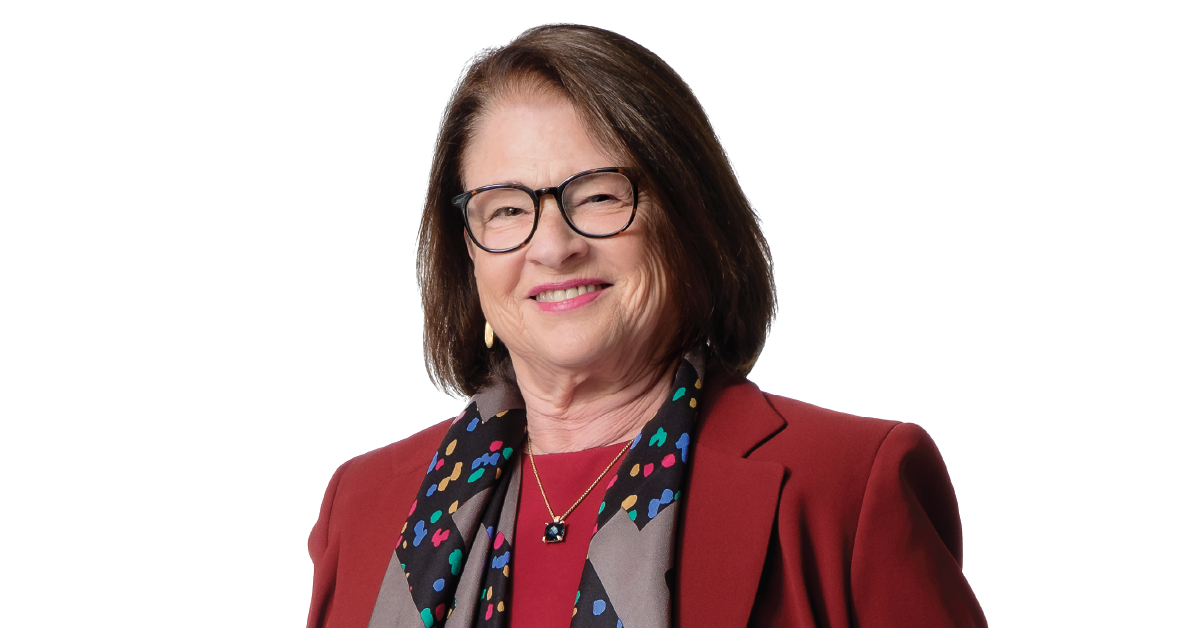This Stanford Psychology Professor Wants to Change the Way We Work
Long-standing models of how we live, work, and retire need to evolve, says Laura Carstensen.

Photo by David Lees.
Editor's note: This article first appeared in the Q2 2022 issue of Morningstar magazine. Click here to subscribe.
Laura Lallos, managing editor of Morningstar magazine, interviewed Laura Carstensen in February. The discussion has been edited for length and clarity.
1) Americans are living longer. How do we meet this challenge for retirement? We need to work longer. We're living 10 to 15 years longer in adulthood than our grandparents did, and most of those years are healthy years, so why wouldn't we? Work is a primary source of a sense of purpose in people's lives.
2) What about the concept of retirement itself? We need to retire more often—to come in and out of the workforce. We work way too hard in the middle of life, while we're raising children and often taking care of older relatives. It's also a time when we're in managerial roles or clients are depending on us. We need more flexible models of work, where we work for fewer or more hours at different phases in our lives.
3) Working mothers are in the vanguard here. Staying in work is good. For example, working mothers have lower rates of depression than stay-at-home moms. We think it's because they are less isolated. But it's hard to balance things if you are working 60 hours a week when your kids are young.
4) Has the pandemic helped redefine work? So much pain and suffering came from COVID-19, but it put a crack into the models of lives that we live, and that crack is letting in light. Hybrid work arrangements can be better for people's mental health and family lives.
5) What's your advice to somebody starting their career? Careers, and lives in general, are marathons, not sprints, so pace yourself. If you want to have kids in your 20s, work part time for a while. And keep learning new skills. That will allow you to have more flexible work later.
6) What about older workers? Older people in management positions need to devise more humane work patterns for the people we employ. And we'll have more flexibility ourselves: Another COVID consequence is the Great Resignation, so employers need older workers. This is a good time to change the cultural workplace norm that you're all in or you're all out.
7) Is this approach to work a luxury for those in certain fields? Relatively low-wage workers are, for the first time in decades, making more money. They have more leverage, and I think that's going to lead to better working conditions.
8) How can financial advisors address this shift? Working longer in the ways that we have been talking about—more flexibly, with respites, while learning new skills—means you aren't working toward one big pot of gold at the end of the rainbow. Advisors can help people save different subpots of money, to take a year off or learn something new. They can help clients think about new pathways through working lives.
9) What about declining cognitive abilities as we age? One of the best ways to stay cognitively able to work is to work. When people step out of the lives that they'd been living and sit down on a couch and watch TV, that's when they begin cognitive decline.
10) What's your best advice for healthy aging? Exercise is the best thing you can do—for your brain, too. If you want to stay cognitively healthy, keep moving. And take care of your friendships. Being socially embedded contributes to quality and length of life.
Bio Laura L. Carstensen is professor of psychology at Stanford University, where she is the Fairleigh S. Dickinson Jr. professor in public policy and founding director of the Stanford Center on Longevity. Her research focuses on the motivational and emotional changes that occur with age and the influence such changes have on cognitive processing. She is the author of A Long Bright Future: Happiness, Health, and Financial Security in an Age of Increased Longevity. Carstensen received her Bachelor of Science degree from the University of Rochester in New York and her doctorate in clinical psychology from West Virginia University.

/s3.amazonaws.com/arc-authors/morningstar/6bbc8215-6473-41db-85a9-2342b3761e74.jpg)
:quality(80)/cloudfront-us-east-1.images.arcpublishing.com/morningstar/5N6PBZJLMJEIXBH6EHTKPDK6NE.png)
:quality(80)/cloudfront-us-east-1.images.arcpublishing.com/morningstar/FIN36RNGOFABFDS2NCP2RCCG3I.png)
:quality(80)/cloudfront-us-east-1.images.arcpublishing.com/morningstar/UWZH3VLHBVCIDP2ANJ73YKE4QA.png)